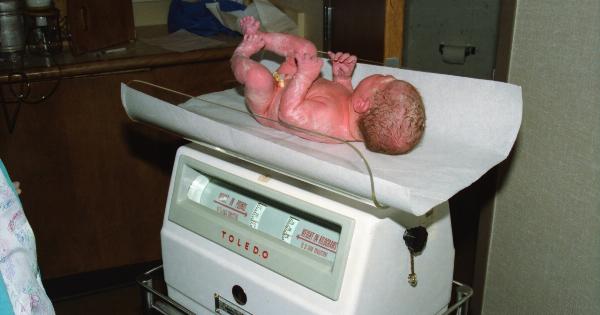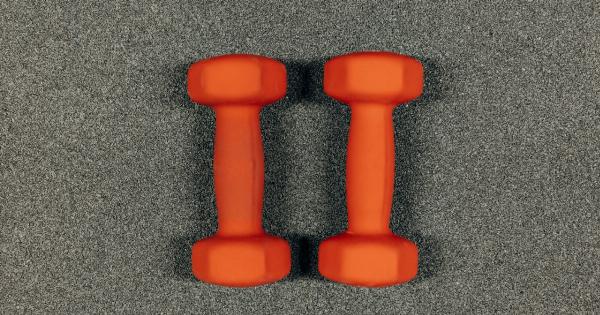Bringing a new life into the world is undoubtedly one of the most incredible experiences any woman can go through. Pregnancy comes with a lot of joys, excitement, and anticipation. However, it also brings significant changes to a woman’s body.
One such change is the inevitable weight gain that occurs during pregnancy. After giving birth, many women find themselves struggling to shed the extra pounds they gained. This battle with postpartum weight loss can be a challenging and lengthy journey.
In this article, we will explore the various factors contributing to postpartum weight retention and provide effective strategies for losing weight after childbirth.
The Physiology of Postpartum Weight Change
Understanding the physiology behind postpartum weight change is crucial in developing a successful weight loss plan.
During pregnancy, a woman’s body naturally accumulates extra fat stores to support the growing baby and provide energy for breastfeeding. Additionally, the body retains water to ensure adequate hydration during labor and lactation. These physiological changes result in an increase in overall body weight.
After giving birth, the body gradually eliminates excess fluid, leading to an immediate reduction in weight. However, losing the fat gained during pregnancy requires more effort and time.
Hormonal fluctuations, sleep deprivation, and the demands of caring for a newborn can make weight loss even more challenging. The body needs time to recover from childbirth and adjust to the new routine before focusing on losing weight.
The Timeline of Postpartum Weight Loss
Postpartum weight loss is a gradual process that varies for each individual. Generally, women can expect to lose about 10 to 20 pounds immediately after giving birth, accounting for the baby’s weight, placenta, and fluid loss.
The remaining weight can take several months or even a year to shed. It’s important for new mothers to be patient with their bodies and prioritize their overall well-being over rapid weight loss.
Healthy Strategies for Postpartum Weight Loss
The key to successful postpartum weight loss lies in adopting healthy lifestyle habits. Crash diets or extreme exercise regimens are not recommended, as they can negatively impact both the mother’s well-being and milk supply if breastfeeding.
Instead, focus on the following strategies to achieve gradual and sustainable weight loss:.
1. Balanced Nutrition
Eating a well-balanced diet is essential for nourishing both the mother and the baby. Include a variety of fruits, vegetables, whole grains, lean protein, and healthy fats in your meals.
Avoid skipping meals and opt for smaller, more frequent meals to keep your metabolism active. Stay hydrated by drinking plenty of water and limit the consumption of sugary beverages and processed foods.
2. Breastfeeding
For mothers who choose to breastfeed, the act itself can aid in postpartum weight loss. Breastfeeding burns calories and stimulates the release of hormones that help shrink the uterus.
However, it’s important to note that breastfeeding alone is not a guarantee for weight loss, as individual factors play a significant role.
3. Regular Physical Activity
Gradually incorporating physical activity into your daily routine can facilitate weight loss and improve overall fitness.
Start with gentle exercises, such as walking, pelvic floor exercises, or postnatal yoga, and gradually increase the intensity and duration as your body heals. Consult with your healthcare provider before starting any exercise program to ensure it’s safe for your postpartum body.
4. Adequate Sleep
Getting enough sleep can positively impact postpartum weight loss. Sleep deprivation can lead to hormonal imbalances and increased cravings for unhealthy foods.
Whenever possible, try to nap when the baby sleeps and prioritize self-care to ensure sufficient rest for your body.
5. Emotional Support
Maintaining mental and emotional well-being is crucial during the postpartum period. Seek support from family, friends, or support groups to alleviate stress and emotional eating.
Surrounding yourself with a positive and understanding network can help you stay motivated and focused on your weight loss journey.
6. Setting Realistic Goals
Set realistic and achievable weight loss goals for yourself. It’s important to remember that every woman’s body is unique, and comparisons to others can be discouraging.
Focus on progress rather than perfection and celebrate small victories along the way.
7. Seeking Professional Guidance
If you’re struggling with postpartum weight loss or have specific concerns, consider seeking guidance from a healthcare professional or a registered dietitian.
They can provide personalized advice and tailored meal plans to help you navigate this journey more effectively.
8. Patience and Self-Compassion
Remember to be kind to yourself throughout the postpartum weight loss journey. It took nine months to create a human life, so it will naturally take time to return to your pre-pregnancy shape.
Avoid harsh self-criticism and have patience with your body’s healing process.
The Importance of Postpartum Health
While losing weight after pregnancy is a common goal for many women, it’s important to prioritize overall postpartum health. Your body has undergone significant changes and needs time to recover.
Focus on nourishing yourself with healthy foods, staying physically active within your capabilities, and taking care of your mental and emotional well-being. Remember that your worth as a mother and a woman is not determined by a number on the scale.
In conclusion, the battle of postpartum weight loss can be a challenging and lengthy process.
Understanding the physiological changes that occur during and after pregnancy, setting realistic goals, and adopting healthy lifestyle habits are key components in achieving gradual and sustainable weight loss. Remember to be patient with yourself, seek support when needed, and celebrate your progress along the way. Embrace the journey of motherhood and prioritize your overall well-being.




















